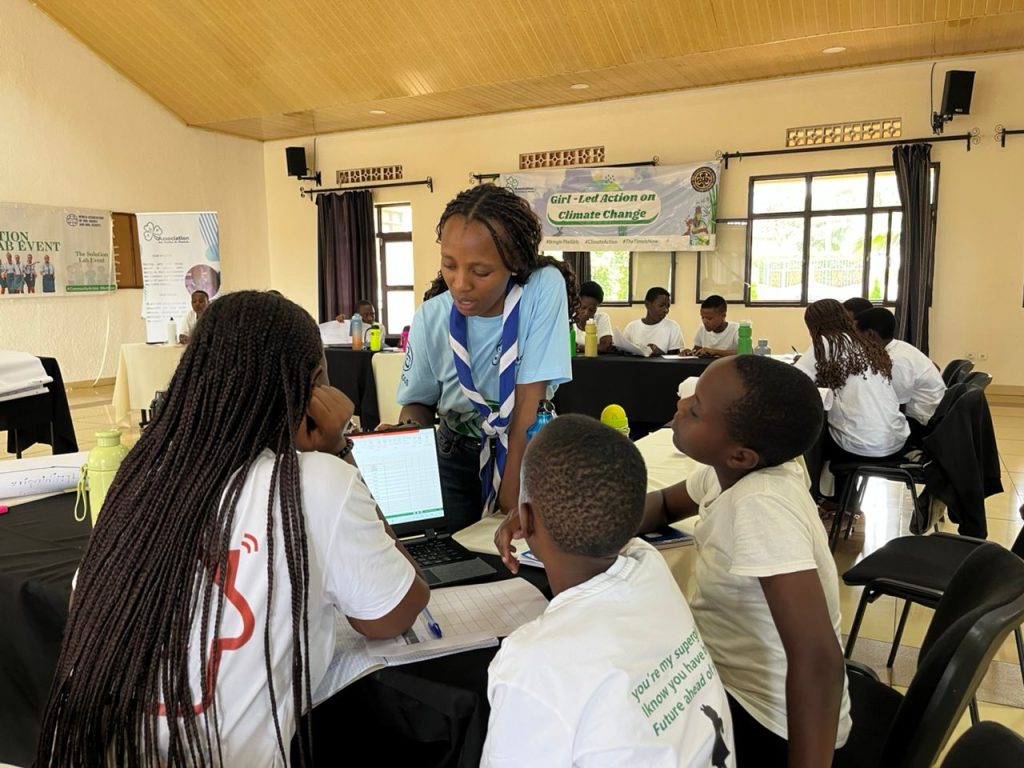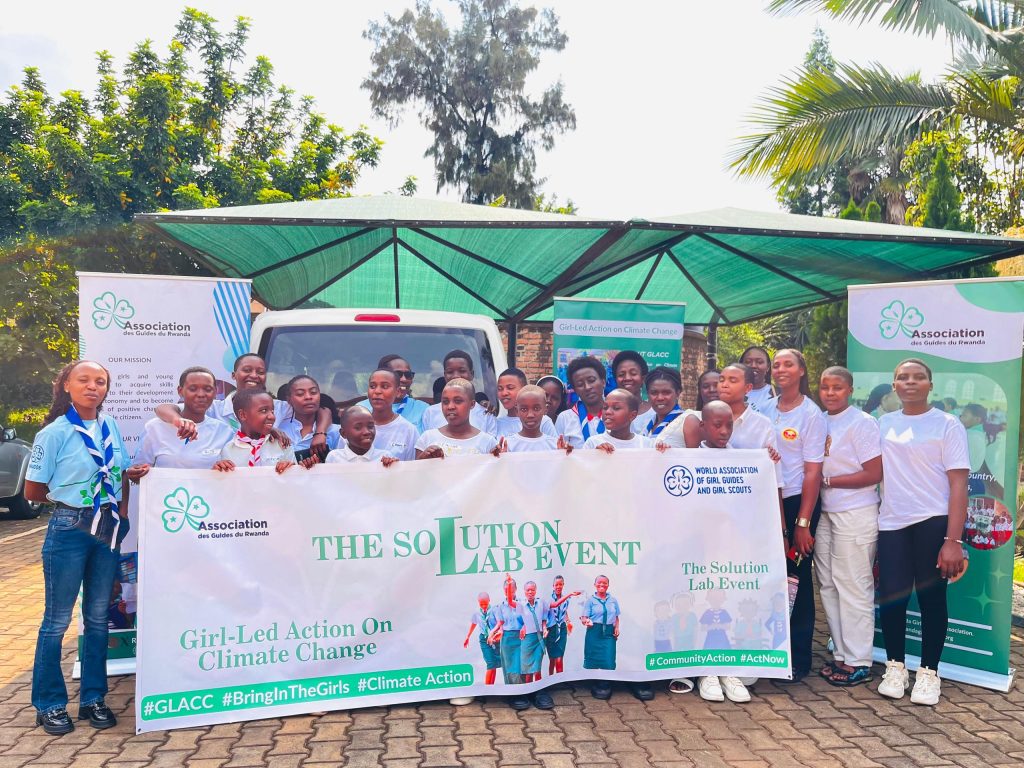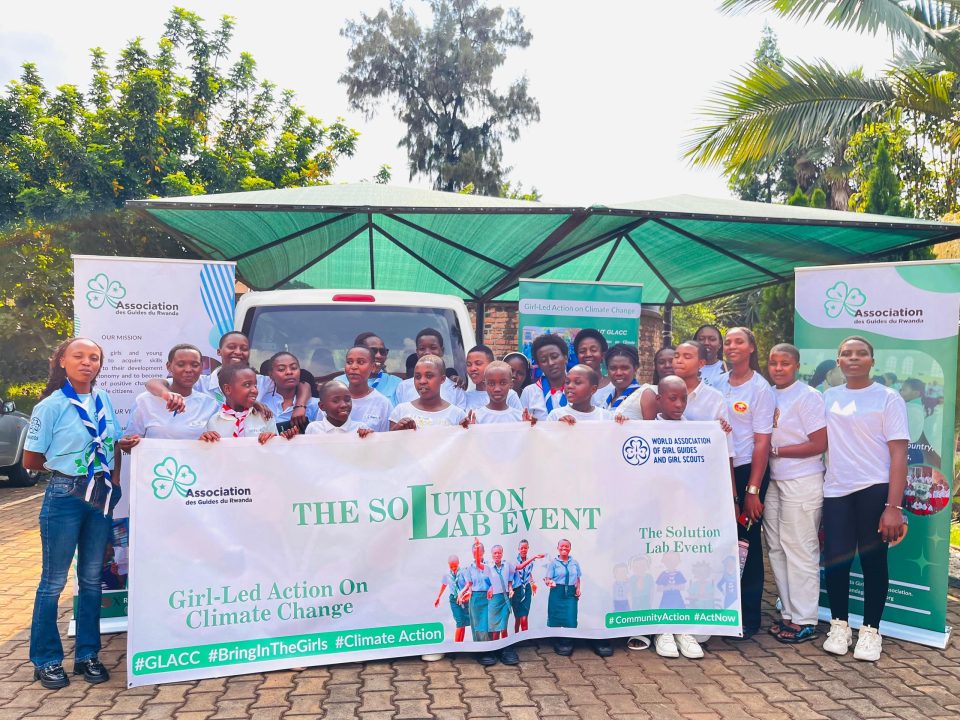In a powerful demonstration of youth leadership and environmental responsibility, young girls from across Rwanda are stepping up to address climate change through the Girl-Led Action on Climate Change (GLACC) Project.
Through climate education, community outreach, and hands-on action, the project emphasizes the important role that girls and women play in building resilient communities.
During a recent Solution Lab event, girls who participated in GLACC curriculum showcased a range of innovative, community-based projects aimed at tackling local environmental challenges. These proposals reflected both the creativity and the commitment of young girls determined to protect their environment.
One such project was presented by Umuhire Keza Deborah, a Primary 5 student from Ngororero, who proposed a waste segregation initiative.
“In our community, biodegradable and non-biodegradable waste is mixed. We realized that biodegradable waste can be turned into compost, while non-biodegradable materials can be recycled into other useful items,” she explained.
Her team plans to work with agronomists to improve compost quality and promote sustainable agriculture.
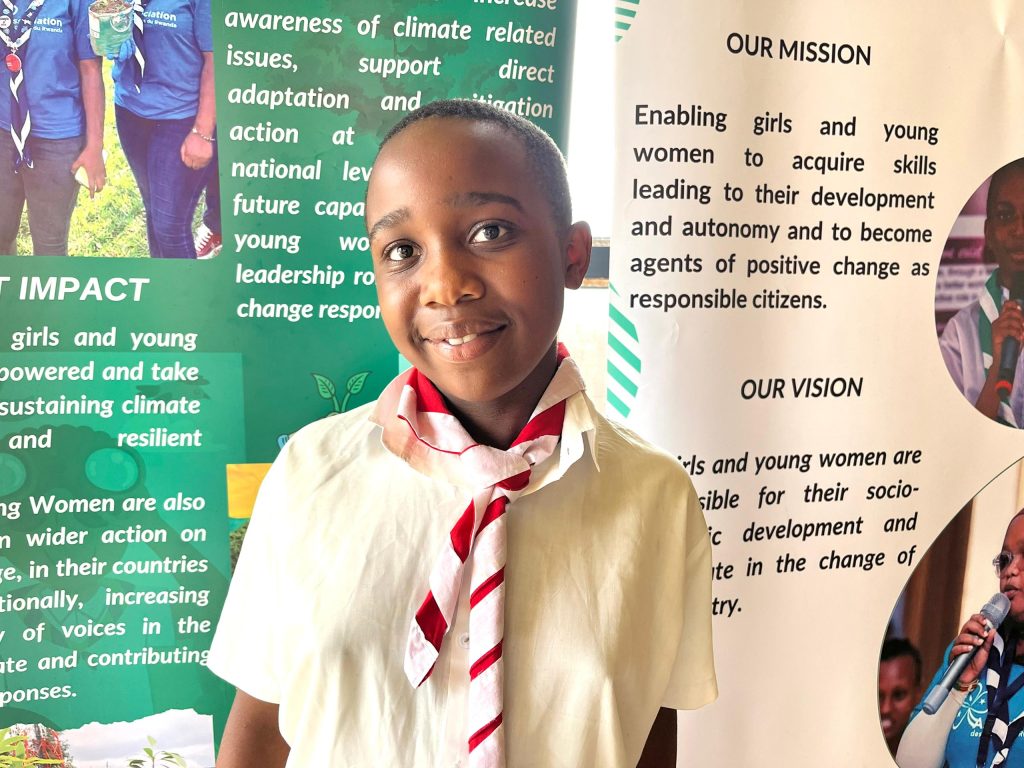
From Murunda, Niyomugenga Winnie shared her team’s vision of fruit trees plantation to combat malnutrition and enhance air quality.
“After studying the GLACC curriculum, we decided to plant and distribute fruit trees to households. This will not only fight malnutrition but also increase green cover and improve the air we breathe,” she said.
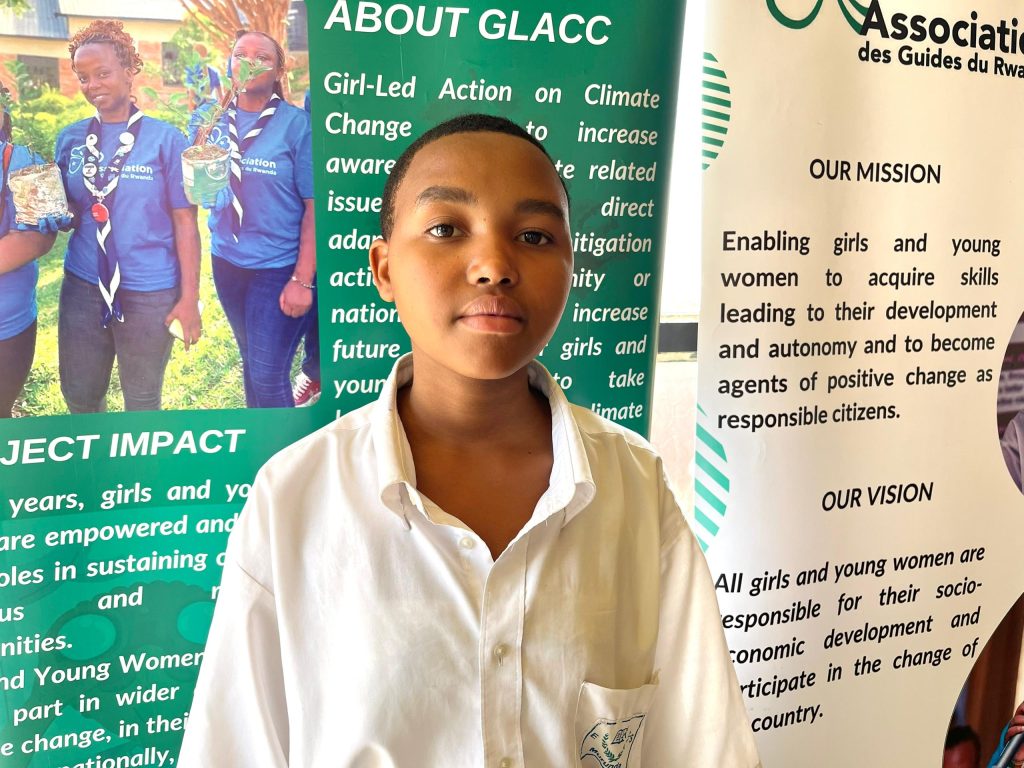
In Muhanga, Nyirahabineza Thacienne, a troop leader, described how her troop focused on addressing soil erosion, a major problem in their school environment.
“After training our children using the GLACC curriculum, we realized that erosion was washing away our vegetable gardens. We launched a project to combat soil erosion so that we can sustain our school gardens and promote good health,” she said.
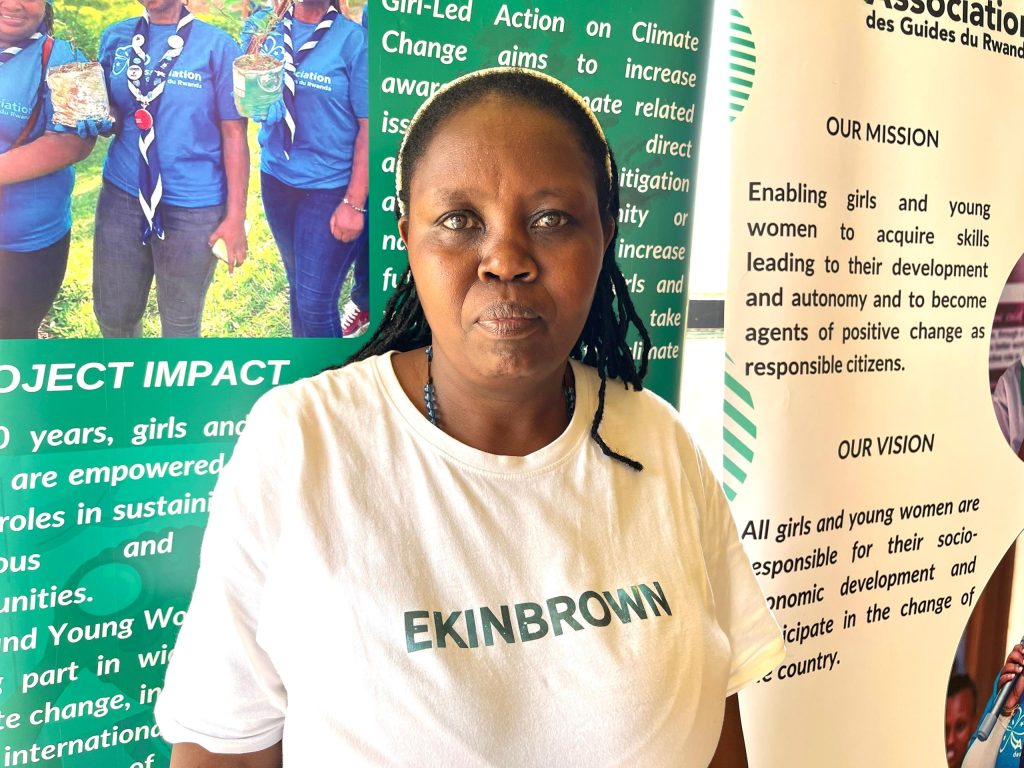
According to Prudencienne Kamabonwa, Executive Director of AGR, the GLACC project has evolved significantly since its launch in 2023.
“We started with education on environmental protection and awareness campaigns on how climate change uniquely affects girls. Now we’ve reached the stage where the girls themselves are designing and proposing practical solutions,” she said.
She also emphasized that these projects are not just theoretical. “The girls’ proposals are well thought-out, and we can see from our time with them that they truly understand the importance of protecting the environment. With support from UNICEF Eastern and Southern Africa Regional Office (ESARO), we will provide the resources needed to bring their projects to life,” Kamabonwa added.
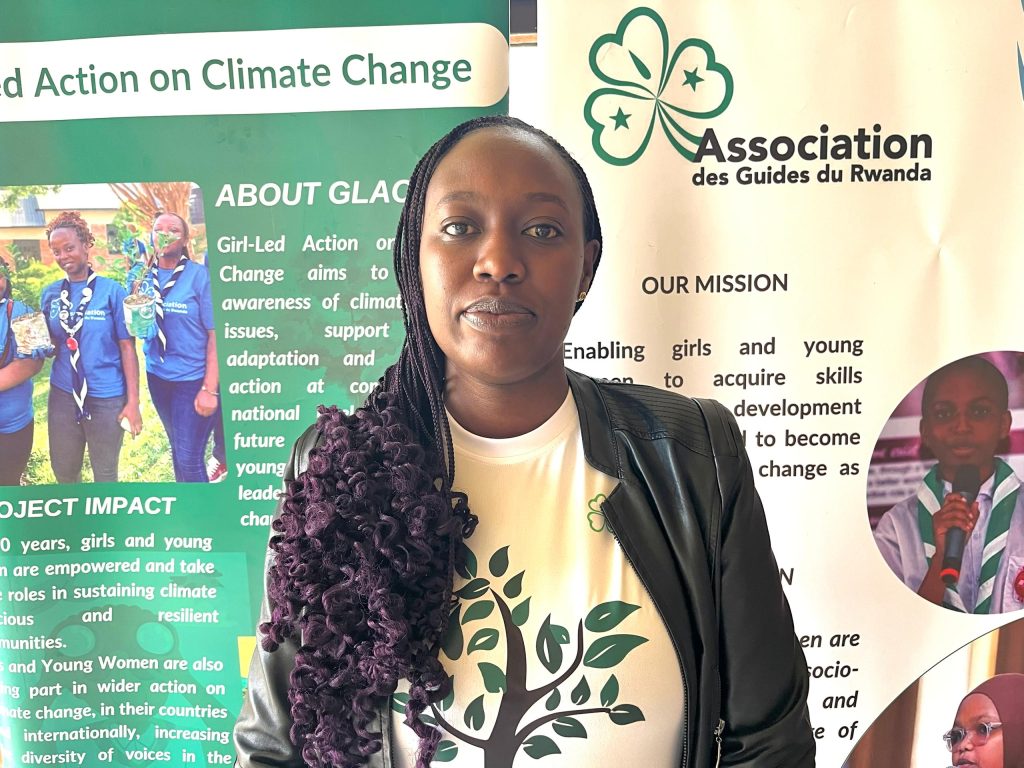
The GLACC project empowers girls in 10 districts of Rwanda Nyamagabe, Rutsiro, Ngororero, Karongi, Muhanga, Huye, Nyaruguru, Nyanza, Rulindo, and Kayonza by equipping them with knowledge, tools, and leadership skills to address the impacts of climate change.
Implemented by the Association des Guides du Rwanda (AGR) and funded by the World Association of Girl Guides and Girl Scouts (WAGGGS) the GLACC project is transforming how girls engage with their communities on climate issues.
Climate change affects everyone, but its impacts are not equally distributed. Girls and women, particularly in rural communities, often face unique challenges due to existing gender roles, limited access to resources, and responsibilities related to water, sanitation, and food security. The GLACC project recognizes these disparities and aims to empower girls to become informed, active leaders capable of driving climate solutions.
By building a network of trained and motivated young girls, the project is cultivating a generation of climate champions who are ready to lead sustainable development efforts—not just in Rwanda, but as part of a growing global movement.
As the GLACC initiative continues to grow, it stands as a testament to what is possible when young girls are given the tools, voice, and opportunity to lead. Their work today is helping shape a more sustainable and equitable tomorrow.
